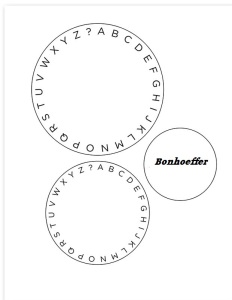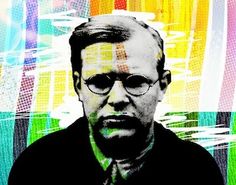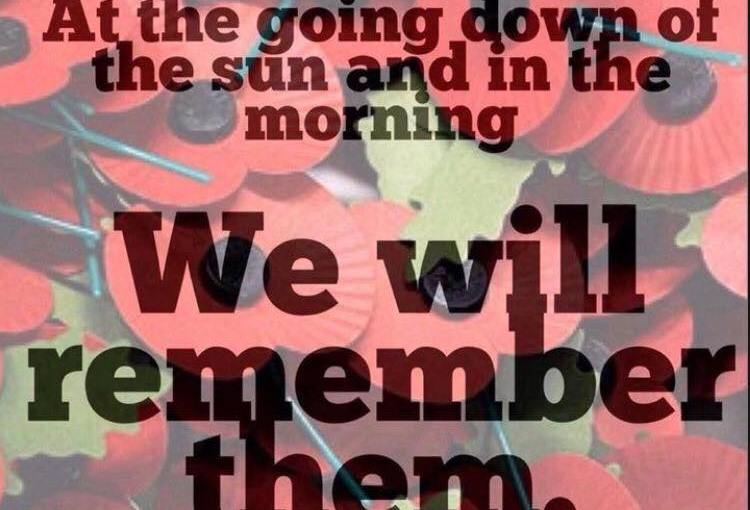Prayer: Dietrich Bonhoeffer served Christ with his mind and intellect, fought against tyranny, inhumanity and barbarism, challenged the Church’s compromise with evil, and refused to abandon his witness on pain of death. Lord, make us steadfast to resist the evils of our own day, and purify your Church to speak and live your truth.
Lord in your mercy, Hear our prayer.
Pray for us Dietrich Bonhoeffer, Pray for us, all saints of God.
Info: Bonhoeffer is remembered by the Church for his courage in the face of Nazi Germany. Bonhoeffer was a clergyman who lived in Germany during World War II. Adolf Hitler came to power of the Nazi Party, and soon after a group of Protestants formed an anti-Hitler group called the Confessing Church. Bonhoeffer was a member of this group and began training its members to become teachers and preachers. When the Nazis found out, they closed the church down. Bonhoeffer was forbidden to teach and was banned from the city of Berlin.
Then came “Kristallnacht” or the “Night of the Broken Glass.” German troops led an attack on Jewish property; more than 7,000 shops were burned down and hundreds of synagogues were burned down. Bonhoeffer thought Christians would be next. He began to speak out more and more against the Nazis; and his friends in the United States became worried about his safety, so they arranged him to visit to give a series of speaker-talks. When it became clear that war would break out soon, Bonhoeffer left the safety of the United States to “share the difficulty of this time with my people.”
Fearing what would happen to the world with a man like Hitler leading it, Bonhoeffer became a double agent by taking a job in the Nazi Military Intelligence Department. His job allowed him to travel all over Europe to visit churches with the expectation that he would bring back information to help the Nazis—but he wasn’t really working with the Nazis, he was working against them and was secretly helping Jews escape Germany to less-hostile countries in Europe.
In the end, the Nazis discovered he was a double agent, and he was put in a Berlin military prison. They also discovered he was involved in a plot to kill Hitler. He was then sentenced to death shortly after. Before he died, he said to another prisoner, “This is the end—but for me it is also the beginning of new life.” He was hanged a few days before the end of the war. Bonhoeffer knelt for the last time to pray; and within five minutes, his life was over. (http://www.loyolapress.com/saints-stories-for-kids.htm?cId=403508)
Craft
For part of the Second World War, Bonhoeffer worked as a spy, getting information on the baddies to use against them. Some of the ways they used for passing on information was in code.
Make the code breaker and set some codes for the kids to work out (there are quotes from Bonhoeffer in the discussion option).
You’ll need to decide which code you’re going to use. You line up the “A” on the smaller circle with the letter on the larger circle that you’ve chosen. Some do the first letter of the day of the week so today would be S for Sunday.

Game
Following on from the theme for the spy craft, double agents need to have a good memory. Bonhoeffer had a very good memory and was very clever when it came to theology and teaching people about God.
This memory game involves a plate or tray covered with either salt or sand.
One person (separate from the group) is told an object or something they can draw in the sand. The rest of their team need to guess what it is they’re drawing.
For younger children this could be simple things like dog, book, family, church.
Or older children you might like to test their biblical knowledge and get them to draw a famous story from the bible, nativity, Noah’s ark, Garden of Eden, Jesus and his disciples.
Discussion
In pairs or larger groups, give one or more of these quotes out from Bonhoeffer. Encourage them to discuss how the quote relates to the topic, what might say about the world, or how it might inform their own faith.
- On hardship…
“You have granted me many blessings; let me also accept what is hard from your hand.” (Prayers for Fellow Prisoners, Christmas 1943)
- On challenging injustice…
“We are not to simply bandage the wounds of victims beneath the wheels of injustice, we are to drive a spoke into the wheel itself.”
- On pastoring…
“A pastor should never complain about his congregation, certainly never to other people, but also not to God. A congregation has not been entrusted to him in order that he should become its accuser before God and men.” (Life Together)
- On materialism…
Earthly possessions dazzle our eyes and delude us into thinking that they can provide security and freedom from anxiety. Yet all the time they are the very source of anxiety. (The Cost of Discipleship)
- On peace…
“There is no way to peace along the way of safety. For peace must be dared, it is itself the great venture and can never be safe. Peace is the opposite of security. To demand guarantees is to want to protect oneself. Peace means giving oneself completely to God’s commandment, wanting no security, but in faith and obedience laying the destiny of the nations in the hand of Almighty God, not trying to direct it for selfish purposes.” (Meditations on the Cross)
- On cheap grace…
“Cheap grace is the grace we bestow on ourselves. Cheap grace is the preaching of forgiveness without requiring repentance, baptism without church discipline, Communion without confession…Cheap grace is grace without discipleship, grace without the cross, grace without Jesus Christ, living and incarnate.” (The Cost of Discipleship)
- On self-importance…
“In normal life we hardly realize how much more we receive than we give, and life cannot be rich without such gratitude. It is so easy to overestimate the importance of our own achievements compared with what we owe to the help of others.”
(Letters and Papers from Prison)
- On worth…
“Christianity preaches the infinite worth of that which is seemingly worthless and the infinite worthlessness of that which is seemingly so valued.”
- On fellowship…
“A Christian fellowship lives and exists by the intercession of its members for one another, or it collapses. I can no longer condemn or hate a brother for whom I pray, no matter how much trouble he causes me. His face, that hitherto may have been strange and intolerable to me, is transformed in intercession into the countenance of a brother for whom Christ died, the face of a forgiven sinner.” (Life Together)
- On Christ…
“Christianity without the living Christ is inevitably Christianity without discipleship, and Christianity without discipleship is always Christianity without Christ.” (The Cost of Discipleship)


